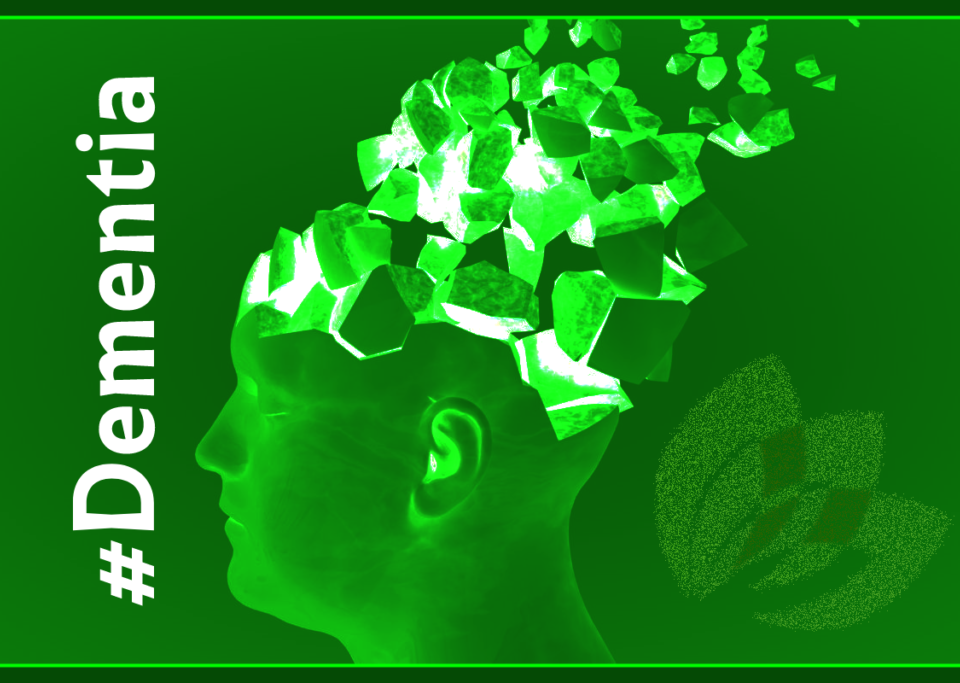
The Dark Truth About Teen Smoking and Its Addictive Grip.
July 25, 2023
The Dark Truth About Alcohol Addiction & Its Deadly Effects
April 23, 2024| Getting your Trinity Audio player ready... |
Dr. Jane G. Nyutu (Mount Kenya University)
April 2024


With many cases of road carnage reported daily in our country whereby fatalities, the reality of infirmity and disability both temporary and sometimes permanent including sudden losses of significant others, continue to haunt families and society in a way.
Additionally, the aging culture, bodily changes, development through life, and significant life events such as anniversaries, departure of children for further education, marriage, a class reunion, the empty nest experience, retirement, birth of grandchildren, media accounts of disasters, atrocities, epidemics, leading to obituaries, we see the unmistakable footprints of death.
When we were born, we are told by the good book that there is an appointment day with death. when age we need to realize that the universe has enrolled all people in the graduate program of life called loss Ross & Kessler (2000). However, most of us do not entertain the subject of death. Faw (1995) posits that we are a death denying culture. We tend to give very little attention to death and it is something we don’t plan for.
Death finds us very unprepared Brown (1990). Even when we witness the grey hair on our heads, the progression to aging of our parents, when they begin to get frail and weak to the point where doctors visits become common, we still don’t comprehend that we are mortals. No one is ever ready to lose a parent even when we celebrate their 80th -90th and 100th birthdays until they suddenly face death. We always imagine there is a tomorrow to continue with visits, meals, conversations, but all is cut short Deits (2017).
Death carries with it great trauma, frustrations, sadness and pain. These emotions must be dealt with intention and awareness failure to which we carry it through life to our own detriment. Deits (2017) likens the unspoken pain, feelings of devastation and despair with a heavy stone that exerts its weight on our hearts and soul. If unchecked, the heart may carry the weight of emotions especially anger, anxiety, sadness, guilt that can affect us through life.
Death is such a mystery that no one can stand confidently and talk about it without feeling the strangeness of the topic. Most of us have experienced loss or have walked with a friend or relative, a colleague, neighbor, a fellow church mate, who are going or have gone through loss and grief. Even when death looks close to the living, a terminal illness, no one dares talk about the possibility of death or even tell the victim about their situation, as if we all pretend that death is unreal Kubler-Ross & Kessler (2000).
Bereavement is losing a significant person whose life was intertwined with ours. This could be Parent, child, spouse, relative, colleague or a friend. Losses come in style and sometimes unspeakable ones such as miscarriage, stillbirth, abortions, divorce, or even bankrupt. Grief is described as “the other side of the coin of love” (Jackson 1980:88). However, though these losses are all significant, death is on top of the list for causing the worst form of grief.


Do People Grief the same way?
No: grief depends on the bond we had with the dead person. The closer the relationship, the greater the grief. In his book Unspeakable losses, Kluger-Bell (1998) shares his wisdom that throughout life, we belong to a family, we develop bonds of friendship with each other that add meaning and purpose to our lives, these are precious relationships that take time to nurture and form. It therefore becomes painful to end these bonds through death.
Grief is a personal experience and no one can grief your loss but only yourself. It very unique and it is shaped by our personalities, history or cultural background Diets (2017). Though we eventually lose our wealth-money, houses, cars, our youth and even health, death is so significant loss among all. In the path of life, we lose friends, colleagues, teachers and models including people we have related closely in the society and world Kubler-Ross & Kessler (2000). Loss of a mother or father figure, also spouse can be very disheartening. They hold a crucial place in our hearts as models, confidants, pillars, prayer partners, holds our roots, keep the family together and are symbols of courage and security.
Loss of children and youth is a painful for parents and society.
Parents always envisage their children getting to work, raise families of their own and become established at work and career taking care of them in their old age and eventually burry them when they die. This kind of loss has a unique pain for them. Many elderly parents express their sadness by imagining if it were them who died in the place of their children. The Bible tells us that we are temporal beings and everything given to us on earth is also short-lived as life itself.
Stages of Grief:
Researchers have provided various findings on stages of grieve.
- Shock and numbness: When news of death first arrives, almost everyone experiences shock, becomes overwhelmed and stunned. Shock provides us with a brief sheltered rest before we begin the long journey through the agony with grief.
- Denial and withdrawal: sense of unreality and one keeps hoping it might be untrue.
- Guilt feelings that they could probably have done something better to save this life. But the opportunity to do this is completely gone.
ii) Anger that might be directed to the doctors and nurses, (feeling like they are not doing their best as they should) family members, close friends or even God (feeling like he has abandoned you and does not love you anymore, like he could have stopped the death from happening). You feel like they are not responding to your grief the way you expect. Like they are not understanding how you feel and what you are going through and as if they are letting you down in some way. Angry reactions are signs of denial and are symbols of your minds effort to shun the pain away.
iii) Blaming: might start blaming yourself or others for the loss. “If only I did this or that”, “I wish we took her/him to this hospital.” “I wish I told her my mind that I love her/him”. Its crucial to know that what was not said before death remains unsaid Dietz (2017)
iv) Questioning: Death leads us to question many things. Questions that begin with “why” like, “why him/her? Why did he not survive like so and so? “why did she die yet she was a good, kind person? Why did she/he suffer so much? Why are we going through this disaster? Why me going through such heartbreak? “Do you want to tell me Am now an orphan?”
(v) Feelings of withdrawal/isolation/ loneliness -feeling like they are in this grief alone and people do not understand what they are going through. This is difficult time because when you need much help, you want to keep away. Tell yourself “these reactions are normal”. They are a path to recovery and say “it will not be forever”. Be aware that you still need others anyway to be less isolated and recover in a healthier way.
- Acknowledging the pain: brings the realization of the reality of death and that life is truly a precious gift to be appreciated and lived when one is still alive as well as celebrated at the end.
- Adaptation and Renewal
Physical and emotional symptoms of Grief:
Feeling weak and drained of energy, inability to engage in routine work, low appetite, forgetting names, phone numbers, and other important data, a persistent dry mouth, physical aches and pains, fantasies with the dead, expecting them to return, disillusionment with the new normal, uncontrollable tears, lack of sleep, fatigue, intense anxiety, inability to focus/concentrate, on tasks anger, feelings as though you are dying inside Deits (2017).
Is Grief a Foe or a Friend?
Faw (1995:125) argues that when we walk through pain, we emerge with a deeper inner strength. Griefs might change us completely if we allow us to learn from it lessons for life.
It is upon us to choose to remember the dead person with either painful memories or with a measure of contentment.
Ways of helping the bereaved
- Allow the person to mourn their pain. They must work through the pain themselves and there is no shortcut in grief. Patience is needed.
- Offer yourself to be a companion in their grief.
- Avoid talking too much. Be an active listener instead, sit in calmness and hurt with your friend. Your being present speaks louder than words.
- Chose your words wisely and avoid such words like “I know how you feel” because you don’t know. You might select words like “I’m hurting with you” or You must be feeling deep pain” This allows the person to empty their feelings.
- Refer to the person who has died by name and describe something unique they attached meaning to.
- Accept them to express their grief and confusion in words by crying in in non-verbal ways.
- Resist the urge to pull the hurting person out of their grief with comments like “your parent is better off now”, “Keep strong”. This may be true but it’s not helpful now. Its difficult to comprehend how to “keep strong” in the initial period of loss. How is this possible when they are already feeling the despair?
- Check on them several weeks or month later and find out how they are coping. Help them revisit their feeling since they have not forgotten.
- Provide practical help like bringing snacks, cooked meals, wash dishes, or take kids to school.
- Encourage to honor the loved one in a practical manner like visiting the grave, planting a tree in memory, writing a poem or a letter, or participating in something that mattered to them.
- Seek Help: In case you realize they are not coping in a healthy way, encourage them to seek professional help through grief counselling or to join a group of fellow mourners.
This kind of help and presence will help them deal with the jungle of emotion that accompanies grief and bear the pain and not become hopeless. They will in turn be able to experience the priceless benefits of good grief Faw (1995).
Live everyday as if it is your last day on earth. Life is short, to be appreciated and enjoyed before death knocks. Live everyday to its fullest Kubler-Ross & Kessler (2000).
Signs of pathological Grief and help is needed:
- When your mind is preoccupied with persistent thoughts of self-harm. Keep telling yourself “I will continue living, I will seek help.
- Self -neglect: failure to self- care, skipping meals, eating junk and lack of exercise, no fluids, nutrition, not paying attention to rest and personal hygiene.”
- Stress overload leading to depression and feeling immobilized for weeks.
- Substance abuse to numb the hurting feelings.
Using tranquilizers or sleeping tablets. Eating too much or too little,
- Anxiety: feeling like life has no meaning.
Dealing with grief is truly hard work and can lead to emotional exhaustion. It is a process and takes months to years. Sometimes you wake up feeling good and at times low in moods and tearing. You may have restless nights at times and others you may fall asleep easily. Feeling up and down, slowly but with awareness and patience, the good days will soon begin to outnumber the sad restless days.
Self- awareness is very key in this journey because acknowledging the loss is the most crucial step towards total healing. Accepting that the person has died and will not come back to life. That whatever they left undone will stay the same. These may cause deep scars that must be intentionally addressed to heal. Grief is not an illness but if the work of grief is ignored, then it will compromise your health and may become sick. You will not always feel as you do this moment for sure. Look around for all the resources available to help you push through and be kind to yourself and your feelings.
Email: [email protected]
This blog article was written by Dr. Jane G. Nyutu, A Counseling Psychologist
Director Mind & Beyond Counselling Centre (MBCC) – (Mount Kenya University. Co author of the book
Integrated Peer Counselling
A psycho-educator and Leadership Coach.
References
Brown, R. (1999). Surviving the Loss of a Loved One: Living Through Grief. AUTUM HOUSE Alma Park: England.
Deits. B. (2017). Life After Loss: A Practical Guide to Renewing Your Life after Experiencing Major Loss.
Da Capo Press Books Boston MA: USA
Kluger-Bell. K. (1998). Unspeakable Losses: Healing from Miscarriage, Abortion, and other Pregnancy Loss. Norton & Company, New York: USA
Kubler-Ross E. & Kessler D. (2000). Life Lessons, Scribner, New York: USA.
Faw W. H. (1995). Psychology in Christian Perspective: An Analysis of Key Issues. Baker Books Grand Rapids, Michigan: USA
Yalom Irvin (). The Gift of Therapy. An Open Letter to a New Generation of Therapists and Their Patients. (pg 124-125)







2 Comments
Impressive
Very vital information which everyone needs to know since we often interact with people who are grieving. This kind of information equips one to deal with loss and grief.